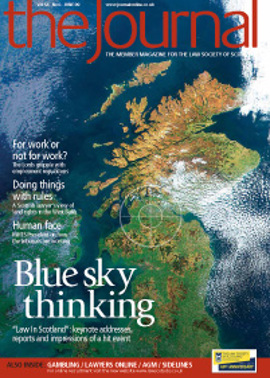Dangerous loophole

The recent media coverage of the suspected terror plot in north west England was of concern, not least because it highlighted that some of the suspects were in the UK to study on student visas. “Bogus” colleges have become a major loophole in Britain’s immigration laws.
How did this problem come about and, perhaps more importantly, what is being done to try and stop it?
So-called “bogus” colleges have been operating in the UK for some time. The courses they provide are often not worth the paper they are written on, or in some cases, are non-existent. Their activities can lead to prospective students and/or their parents being cheated out of their money. In addition, the UK’s excellent reputation for education is tarnished. In an environment where individuals can study almost anywhere in the world and competition between education facilities is fierce, any impact on this reputation could be costly.
Often these institutions make false claims of association with legitimate colleges and universities, or inferring accreditation with professional bodies. The University of Dundee recently succeeded in having a “business school” remove references to the university from its online prospectus.
According to the Government, the new immigration procedures introduced in 2007 are tackling the problem. International students need to be accepted by genuine institutions before they can come to the UK, and colleges and universities that wish to take foreign students now have to register with the Home Office.
While these measures will have an impact, bogus institutions continue to operate throughout the UK. Many remain on the Register of Education Providers kept by the Department for Innovation, Universities and Skills, which arguably infers endorsement by the Government. The Home Office is however creating a Home Office Sponsors Register. In future, a college recruiting students from abroad will have to be on this register, and show that it has been accredited by an approved body.
Certain legal remedies do exist. Misleading or fraudulent advertising can be reported to the Advertising Standards Authority. Failure to adhere to ASA recommendations can be reported to the Office of Fair Trading, which can seek interdict to prevent false advertising. Such action, of course, takes time, during which more students are potentially being duped and the good name of legitimate UK institutions is being damaged.
If a legitimate institution finds another body making a false claim of association, it could sue for passing off by using its goodwill and reputation without authorisation in a manner likely to confuse the public. No such action has yet been raised by a Scottish institution.
In addition, it may be possible for parents or students to sue for breach of contract should they have paid for a course of a particular standard and this is not delivered. Considering the costs involved, this may not be an effective option. Another option would be to involve the police should any fraudulent activity occur.
Most of these methods are already being explored. It is suggested however that the most effective approach is to prevent bogus institutions from using the word “college”.
The word “college” immediately attracts potential students. Not all institutions use the word in their trading name, but preventing its misuse would make it more difficult for bogus institutions to attract students.
The Association of Scotland’s Colleges (ASC) wrote to the Secretary of State for Business, Enterprise and Regulatory Reform in 2007 regarding this issue, and received a response confirming that the possibility had been explored and deemed impracticable. Nevertheless it was confirmed that the Department was reviewing the words which cannot be included in a company’s name without prior consent, with a view to bringing in new regulations.
Words such as “university” are protected under the Business Names Act 1985, to be replaced from 1 October by the Companies Act 2006, ss 1192-1199. Section 1198 also provides a new offence where a person carries on business in the UK under a name “which gives so misleading an indication of the activities of the business as to be likely to cause harm to the public”. This however is a reactive measure and does not offer the same protection as a requirement for prior consent before an entity can use a protected word in its business name.
Recent campaigns from ASC and their English counterparts have resulted in an Early Day Motion being tabled in Westminster for “prior consent” protection to be offered to “college”. If this is achieved and the other measures noted above are adopted, it is hoped that bogus colleges may be prevented from establishing themselves, and more importantly continuing to operate, in the UK.
Foreign students have been welcome in the UK for many years, not only because of the economic benefits but also because of the wider international outlook they bring. As a Herald editorial recently stated: “Bogus colleges not only cheat students who believe they will gain a qualification, but their existence risks the possibility of Scottish colleges and universities having their reputations besmirched by association.”
The revelation of “bogus” colleges being a gateway to Britain for alleged terror suspects demonstrates that the problem is more acute than that. This is a matter of national importance and further legislative intervention is urgently required.
In this issue
- Spanish executry law – cross border issues
- The Scottish Parliament’s Emergency Bill procedure
- One year on
- Unequal before the law (1)
- Ian Smart's inauguration speech
- Your new First XI
- Dangerous loophole
- Unlocking the rule of law
- Our guiding light
- A hit for the conference
- Of chairs, trains and escalators
- Unequal before the law
- Matters of the mind
- New game, new rules
- Advance on all fronts
- Making openness work
- The First XI
- Society parleys with the OFT
- Professional Practice Committee
- Committees: the unsung heroes
- Find a client?
- Platform for success?
- Ask Ash
- Constant foe
- Killer question
- A time to be inventive
- Deep pockets required?
- Win some, lose some
- New client - new problems
- Website review
- Book reviews
- A business view






